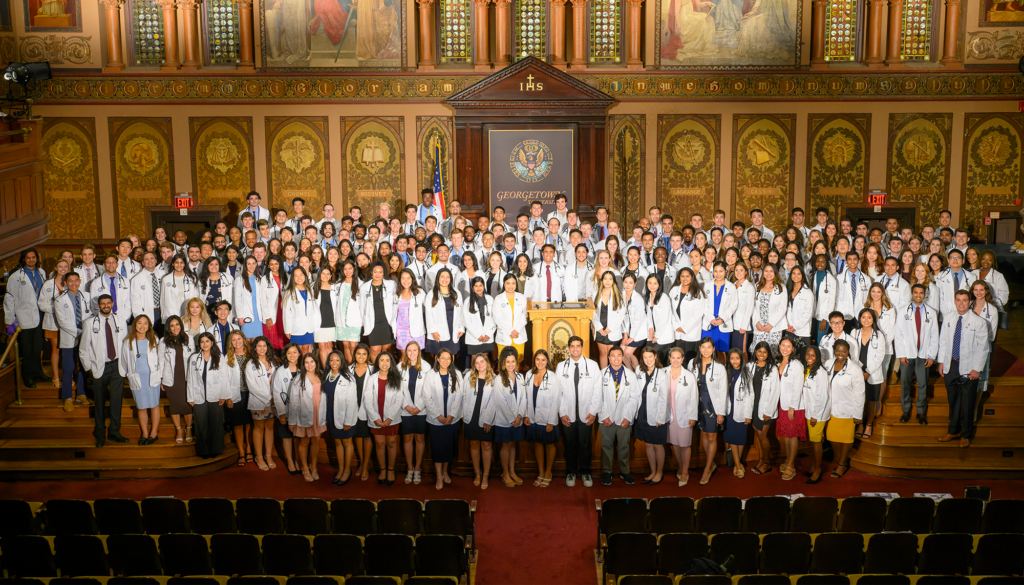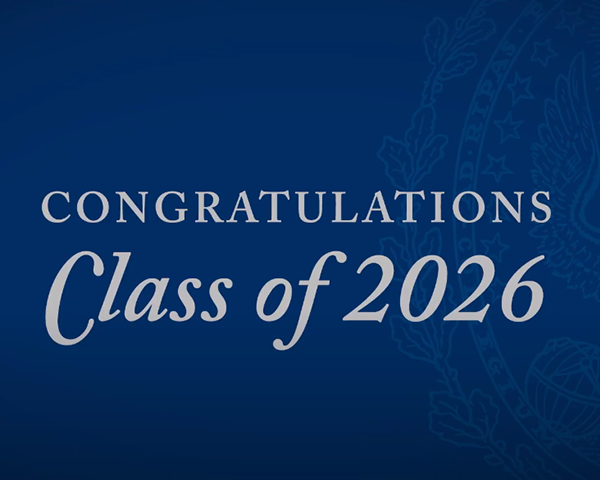At the White Coat Ceremony, Medical Students Urged to Prioritize Their Patients
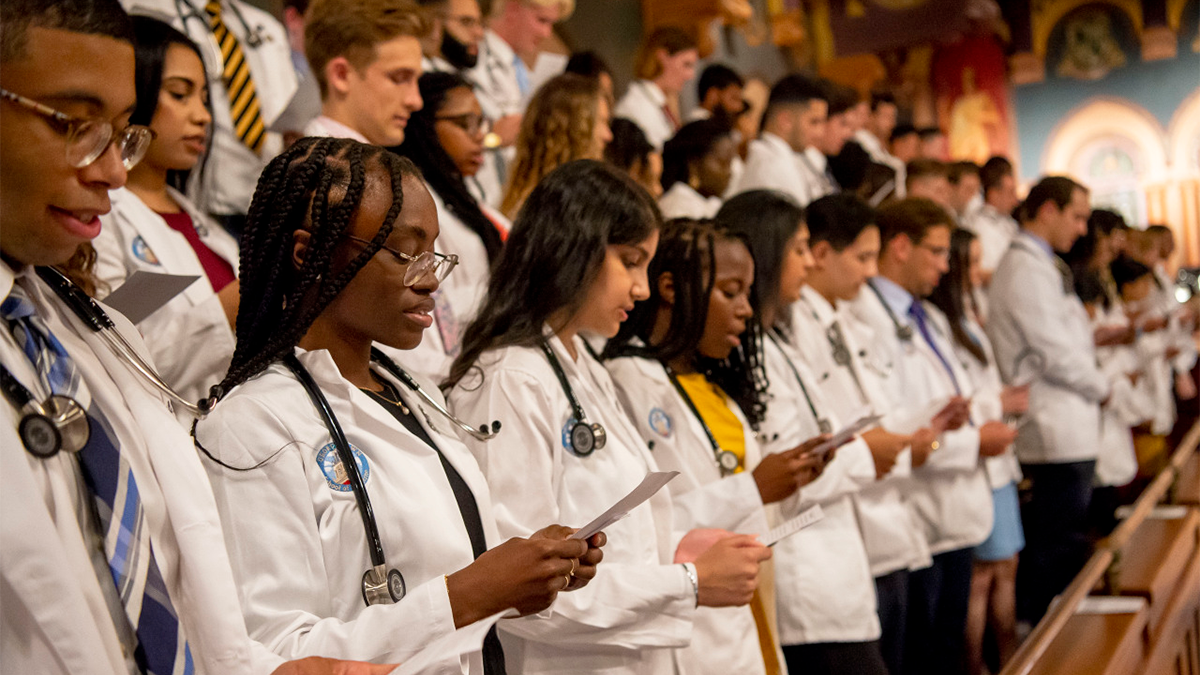
Posted in News Stories | Tagged medical education, White Coat Ceremony
(August 7, 2022) — Held in Gaston Hall for the first time since 2019, the White Coat Ceremony marked the official beginning of medical education for first-year students at the School of Medicine.
“Georgetown University School of Medicine Class of 2026, welcome to the house of medicine,” said Earl H. Harley, Jr., MD, FACS, FAAP, professor of otolaryngology and pediatrics, after leading the new medical students in reciting the Hippocratic Oath at the August 5 ceremony.
“For those of you who don’t know the stats, this class of 203 came from just under 16,000 applicants,” said Lee Jones, MD, dean for medical education. “So parents, you have an external reason to be very proud.”
Continuing a Lifetime of Learning
Those starting careers in medicine must be prepared to dedicate themselves to learning throughout their lives, Jones said. “One of the challenges here is not just to learn what we will be teaching you and what you will be teaching each other and what our patients will be teaching us, but to learn how to learn as you move forward, because you will be forever, across your career, responsible for keeping up with what the latest things are,” he said.
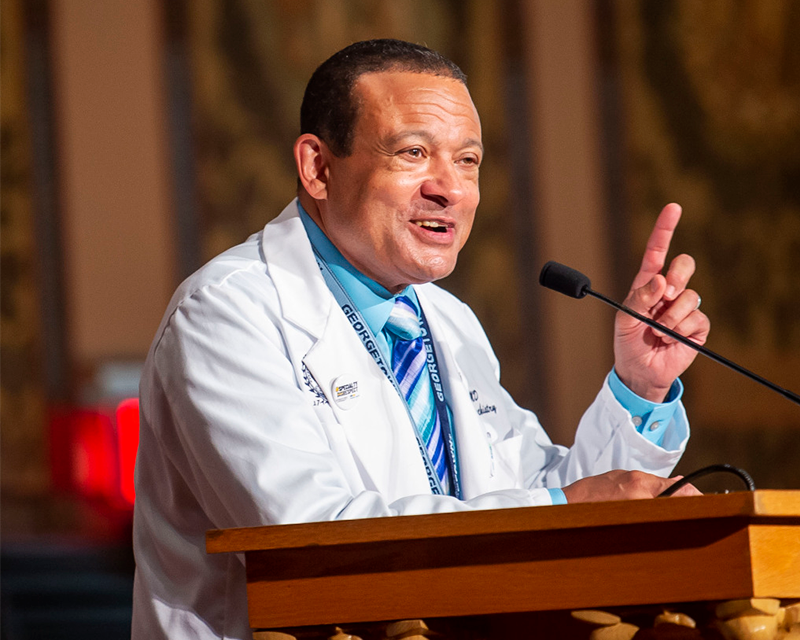
Learning societies provide opportunities for students to develop a greater understanding of their coursework by connecting with classmates and faculty members throughout the School of Medicine. At the White Coat Ceremony, students find out which learning society they will join.
“Our learning societies serve as a platform for the creation of a mentor-rich environment, and by mentorship, we mean by faculty as well as by classmates, upper-class, people in the classes below you and your class,” Jones said.
Putting Patients First
Giving the Edmund Pellegrino Professionalism Lecture, Stephen R. Mitchell, MD, MBA, dean emeritus, paid tribute to the late Pellegrino, who was emeritus professor of medicine and medical ethics, and founder of the eponymous Center for Clinical Bioethics.
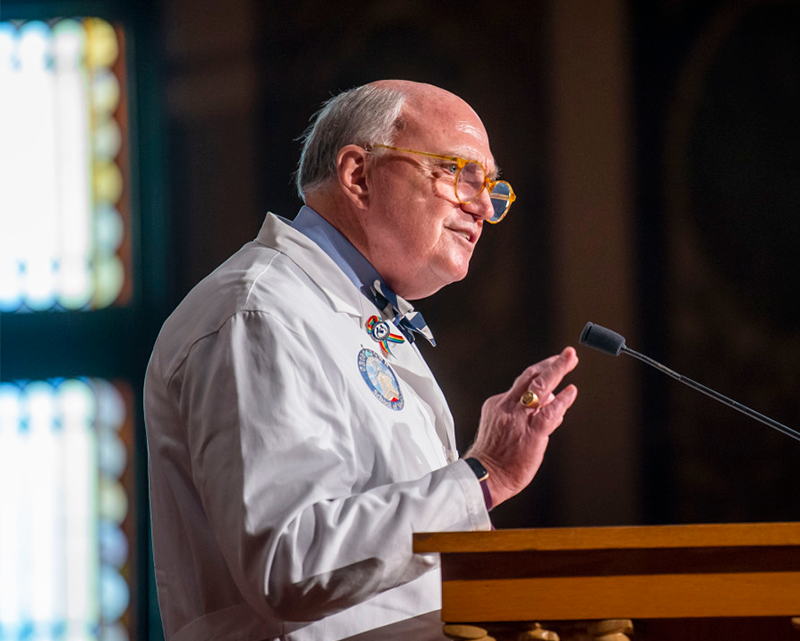
“Dr. Pellegrino firmly reminded us and all of American medicine that when one puts on the coat and one professes his name as a healer, the patient’s good, first and foremost, must drive everything we do for that patient,” he said.
Mitchell also praised Donald Knowlan, MD, emeritus professor of medicine, who previously delivered the Pellegrino lecture at the White Coat Ceremony for 12 consecutive years. “As Dr. Knowlan reminds us, medicine changes rapidly, usually for the better, but we must never forget the oath you take today is a sacred promise to the patient, the patient, the patient,” he said.
The white coat is a powerful symbol for both doctors and patients, but its power cannot be realized unless doctors make personal connections with their patients, Mitchell said. “We must and we should touch the patient,” he said. “Reach out to their heart and touch it with our own heart. If we do not, the lack of investment is known to the patient and the magic of our touch is not realized.”
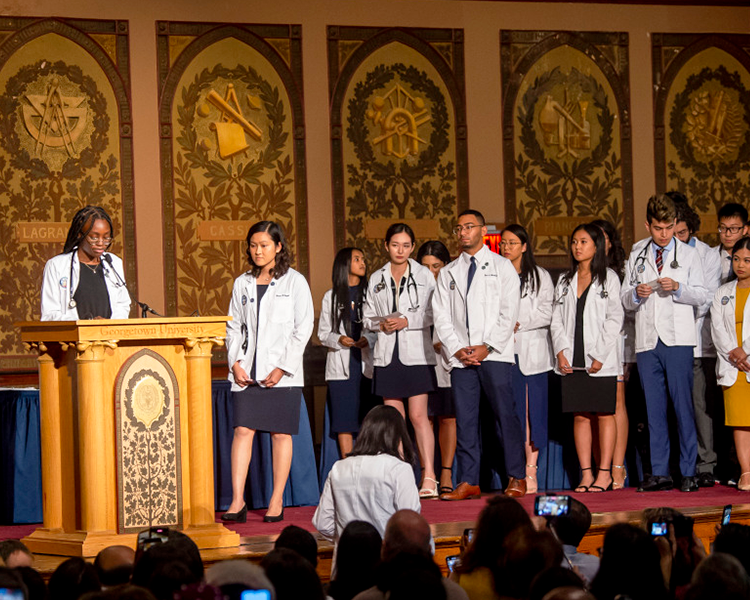
As is tradition, the medical students verbally signaled their dedication to patients by reciting in unison the Oath of Hippocrates, led by Harley. In a new school tradition intended to recognize the class’s diversity, students recited the oath a second time in multiple languages.
Princy N. Kumar, MD, professor of medicine and microbiology, and senior associate dean of students, echoed Mitchell’s sentiments about prioritizing the patient.
“Being a good physician means taking responsibility for your patient, truly feeling that you are the one responsible for what happens to them,” she said. “Ultimately, to be a good doctor, you must be able to be touched by a patient’s life as well as their illness.
“There will be countless times during these four years that you will feel inadequate,” Kumar added. “But I want you to remember that a strong work ethic and the resilience that got you here is what is going to see you through.”
Kat Zambon
GUMC Communications
The Class of 2026
